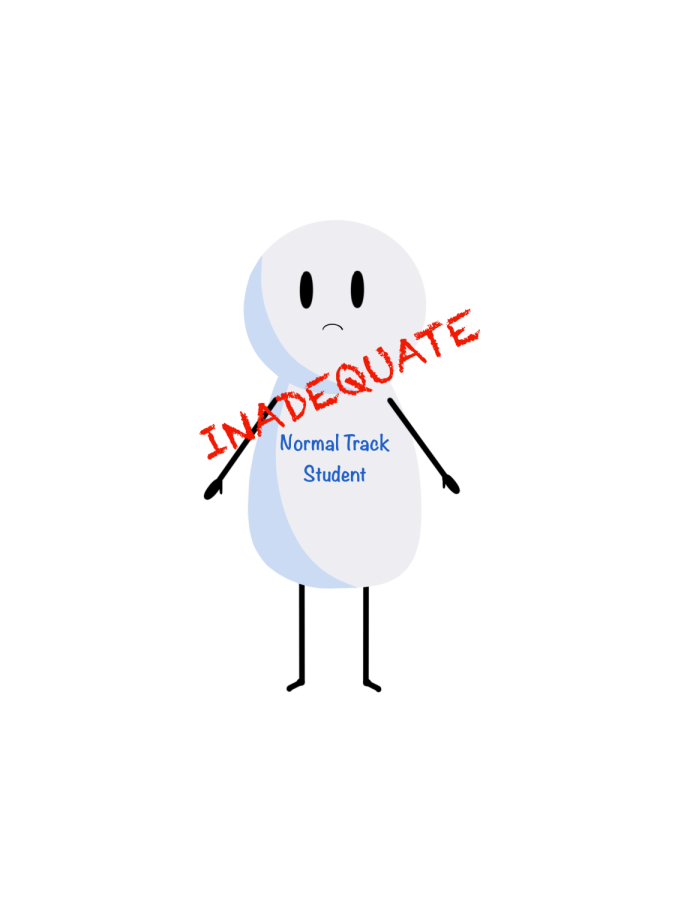Label Toll
The long lasting effects of labeling have a negative impact everywhere, from school to politics
Students that take lower level classes are labeled as inadequate.
People judge an individual in a split second. They judge everything be it clothes, speech or race. Labeling someone based on preconceived notions of the opinions of others who are similar to them only limits understanding and discourages a debate.
A class taken in school can cause stern assumptions of the individual’s talent. For example, if someone is not taking an advanced math class, then people might assume he or she is not “advanced enough,” and if this person does not take an AP class, then people might assume he or she is not going to a prestigious university. However, this is not true. Ironically, some schools are now eliminating AP classes because they focus on “breadth over depth,” according to the Washington Post. These labels can have a negative impact on a student, who might feel forced to take AP classes instead of classes they know they can succeed or excel in.
“People thought I would be in a higher math, because I take AP Literature, AP Physics, and AP Latin,” senior Kade Nygaard said.
People made assumptions about Nygaard based on him taking many APs, and it was time consuming and annoying to keep answering questions by saying that he’s not in that higher level math class.
Woodbridge High, like most Irvine schools, is one of the most academically challenging public schools in America. Irvine Unified School District
has the second highest school district rating according to Kamran Rosen, a content analyst and economics writer. Students are not only pressured to get great grades by parents and teachers, but are being judged by their own peers.
The problem with this, however, is that grades don’t reflect talent: they reflect memory retention. Higher test scores are not eq
uivalent to more knowledge. A piece of paper shouldn’t be able to define four years of your life, but that is what a transcript tries to do. A transcript itself is labeling you. Trying to measure intelligence and animus by a transcript inevitably leads to some people being overlooked.
This labeling can be found in other places besides schools. No place is more prevalent with labeling than the political field. If you say anything about a politician, you are immediately put into one of two parties: Democratic or Republican. People vote along party lines, instead of what is best for themselves. Voting for yourself is the best thing to do. If the entire country votes for who is best for them, the person who is elected will be best for the most amount of people. Although some might think this absolves some information required to have an informed vote, but people still need to be informed. In order to be informed, we must have discussions about these ideas. Unfortunately, debates have ceased being about ideas and instead become shouting matches that only lead to more animosity. People will use every tweet, soundbite or photo they can find to change the subject, and not listen to the argument. Where they cannot find “dirt,” they will make some in the form of lies and misinformation. This takes away from the actual debate.
When labels are placed upon someone, whether politically or academically, you shut yourself off from the bigger picture. Labeling people closes you off from listening to them, and if you don’t listen to them, you can’t expect them to care about or respect your opinions. Without mutual respect, there cannot be a thought provoking discussion.
Your donation will support the student journalists of Woodbridge High School. Your contribution will allow us to purchase equipment and cover our annual website hosting costs.

I try to be as open-minded as possible. I want to stay objective. In some subjects, I will have a bias, but I will try to remove that bias as much as possible....

Hey there Warriors, I'm Alyssa! A lot of what I do focuses on the artistic and aesthetic aspects of things. I'm pretty good at creative problem solving...







